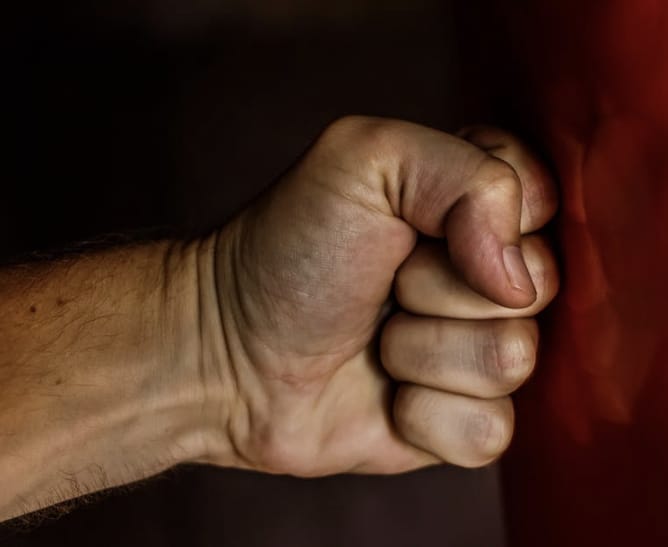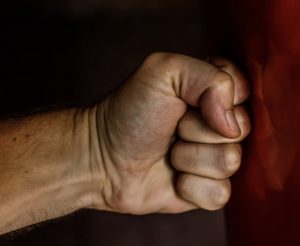Oppression and retribution


The Prophet (peace be on him) said:
مَنْ كَانَتْ عِنْدَهُ مَظْلِمَةٌ لِأَخِيهِ فَلْيَتَحَلَّلْهُ مِنْهَا ؛ فَإِنَّهُ لَيْسَ ثَمَّ دِينَارٌ وَلَا دِرْهَمٌ مِنْ قَبْلِ أَنْ يُؤْخَذَ لِأَخِيهِ مِنْ حَسَنَاتِهِ، فَإِنْ لَمْ يَكُنْ لَهُ حَسَنَاتٌ أُخِذَ مِنْ سَيِّئَاتِ أَخِيهِ فَطُرِحَتْ عَلَيْهِ “. البخاري.
“Whoever has wronged his brother, should ask for his pardon (before his death), as (in the Hereafter) there will be neither a Dinar nor a Dirham. (He should secure pardon in this life) before some of his good deeds are taken and paid to his brother, or, if he has done no good deeds, some of the bad deeds of his brother are taken to be loaded on him (in the Hereafter). (Bukhari ).
The need to undo wrongs
If you have wronged someone, you need to sort it out quickly. Before it’s too late. On the Day of Judgement, you will not have any money then to rectify what you did wrong.
Sort it out in dunya because otherwise you will have to pay with your good deeds. If you have any good deeds.
Whoever you have wronged, will take your good deeds from you. If you have run out of good deeds, then he will give you some of his bad deeds. So be careful not to commit any oppression of wrongdoing in this life.
وَعَنْ جَابِرٍ بن عبد الله - رضى الله عنه - قَالَ: قَالَ رَسُولُ اَللَّهِ صلى الله عليه وسلم: { اِتَّقُوا اَلظُّلْمَ, فَإِنَّ اَلظُّلْمَ ظُلُمَاتٌ يَوْمَ اَلْقِيَامَةِ } أَخْرَجَهُ مُسْلِمٌ. (1945) .
Jabir bin ‘Abdullah (May Allah be pleased with him) narrated that the Messenger of Allah (ﷺ) said:
‘Beware of oppression, for oppression will turn into excessive darkness on the Day of Resurrection’. (Muslim).
On the day that we will need light the most, oppression well deprive us of light.
We are all liable to hurt each other at one time or another, so we have been given a warning by the Prophet (peace be on him) to fix our messy affairs.
Types of wrong
You might wrong someone in different ways. It could be that you took someone’s right, or you insulted somebody. It is wrong to deprive anyone:
1- physically
2- financially
3- of their honour
They might know about it or they might not. Regardless, it is haram.
Oppression is forbidden
There are plenty of verses which forbid oppression.
(Allah does not love the evildoers). 3:140.
The Prophet (peace be on him) said:
Verily, your blood, wealth and honour are inviolable for you as the sacredness of this day of yours in this land of yours in this month of yours. (Muslim)
In the Holy Hadith Allah Almighty said:
‘Oh my servants I have made oppression forbidden for Me and for you. So do not oppress one another. (Muslim)
For as long as we are alive we have to rectify our mistakes, shortcomings and wrong doings.
There is always an opportunity to put it right.
Seek forgiveness from those you wronged
It is not enough to seek Allah Almighty’s forgiveness although it is required, but Allah Almighty’s forgiveness is not complete (no matter how much you cried to Him) until you have made amends to the wronged person.
When we wrong someone we need forgiveness from the one we have wronged, in order to gain complete forgiveness from Allah Almighty. If you took from someone’s rights, you need their forgiveness.
If your shortfall was with Allah Almighty, He will forgive you if you repent sincerely, but He will not forgive what is between you and someone else, until the wronged party has forgiven you.
The power of the weak
The oppressed may appear weak, vulnerable and insignificant, yet paradoxically this very quality should be feared. Such people are very close to Allah Almighty and He is with them. He answers their Duas.
عَنِ ابْنِ عَبَّاسٍ ـ رضى الله عنهما ـ أَنَّ النَّبِيَّ صلى الله عليه وسلم بَعَثَ مُعَاذًا إِلَى الْيَمَنِ، فَقَالَ “ اتَّقِ دَعْوَةَ الْمَظْلُومِ، فَإِنَّهَا لَيْسَ بَيْنَهَا وَبَيْنَ اللَّهِ حِجَابٌ ”. بخاري.
Ibn `Abbas narrated that the Prophet (ﷺ) sent Mu`adh to Yemen and said:
Be afraid, from the supplication of the oppressed as there is no screen between his invocation and Allah.(Bukhari)
Nevertheless Allah’s response is related to His wisdom and His timing not to our judgment and our timing.
Abu Sa’id al-Khudri reported that the Prophet, (peace be upon him) said:
“There is no Muslim who supplicates to Allah without sin or cutting family ties in it but that Allah will give him one of three answers: he will hasten fulfilment of his supplication, he will store it for him in the Hereafter, or he will divert an evil from him similar to it.”
They said, “In that case we will ask for more.”
The Prophet said, “Allah has even more.” (Musnad Ahmed)
Types of punishment
There are two kinds of punishment which are applied in this world before the Hereafter:
The first is punishment for oppression.
The second punishment is for cutting blood ties.
عَنْ أَبِي بَكْرَةَ، قَالَ قَالَ رَسُولُ اللَّهِ صلى الله عليه وسلم “ مَا مِنْ ذَنْبٍ أَجْدَرُ أَنْ يُعَجِّلَ اللَّهُ لِصَاحِبِهِ الْعُقُوبَةَ فِي الدُّنْيَا مَعَ مَا يَدَّخِرُ لَهُ فِي الآخِرَةِ مِنَ الْبَغْىِ وَقَطِيعَةِ الرَّحِمِ ” . رواه الترمذي و قَالَ هَذَا حَدِيثٌ حَسَنٌ صَحِيحٌ .
Abu Bakr narrated that the Messenger of Allah (peace be on him) said:
There is no sin more worthy of Allah hastening the punishment upon its practitioner in the world – along with what is in store for him in the Hereafter – than tyranny and severing the ties of kinship. (Tirmidhi).
For those who committed oppression in dunya, their punishment will be in dunya and worse in the akhirah.
Imagine those who committed many crimes and even genocide and those in power who have imprisoned, tortured or massacred innocent people, they will be punished in the dunya and we will see this before our eyes in the dunya, and in the Akhirah, Allah has prepared something worse for them.
عن أبي موسى – رضي الله عنه – قال: قال رسول الله – صلى الله عليه وسلم -: ((إن الله ليملي للظالم حتى إذا أخذه لم يفلته))، قال: ثم قرأ: ﴿ وَكَذَلِكَ أَخْذُ رَبِّكَ إِذَا أَخَذَ الْقُرَى وَهِيَ ظَالِمَةٌ إِنَّ أَخْذَهُ أَلِيمٌ شَدِيدٌ ﴾ [هود: 102]؛ متفق عليه.
Abu Mūsa al-Ash‘ari (may Allah be pleased with him) reported that the Prophet (peace be upon him) said:
‘Verily, Allah gives respite to the oppressor, but when He seizes him, He does not release him.’
Then he recited: And thus is the seizure of your Lord when He seizes the cities while they are committing wrong.
Indeed, His seizure is painful and severe. (Bukhari and Muslim)
All oppressors will face the same destiny. The punishment may not seem apparent to us and it may not necessarily to be physical it might be physiological or an illness.
It’s a message for all of us to avoid, as much as possible, any kind of oppression or shortcomings and to ask Allah Almighty to make us from those are committed to justice and not oppression, and to repentance rather than arrogance. Ameen.
Khutbah delivered by Shaykh Haytham Tamim on 4th Jan 2020
Recommended Posts

How Allah strengthens the hearts of believers
April 19, 2024

Don’t be a Ramadani person – Be a Rabbani person.
April 10, 2024

